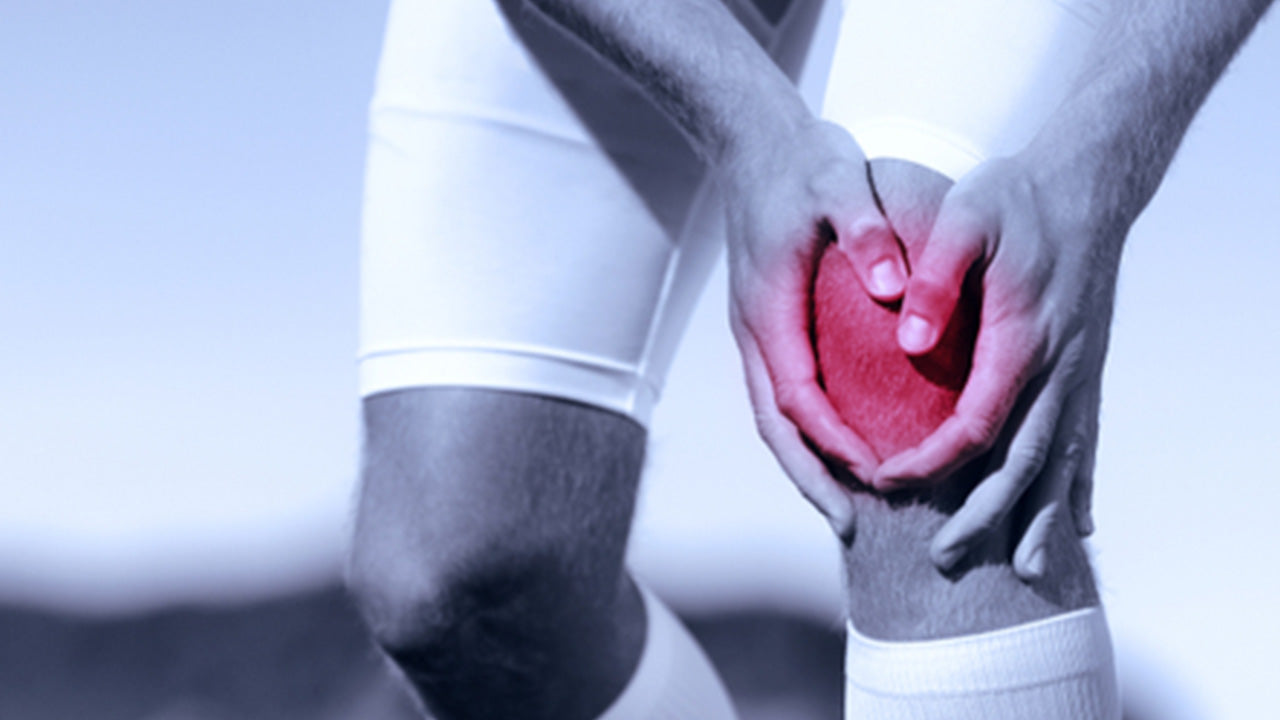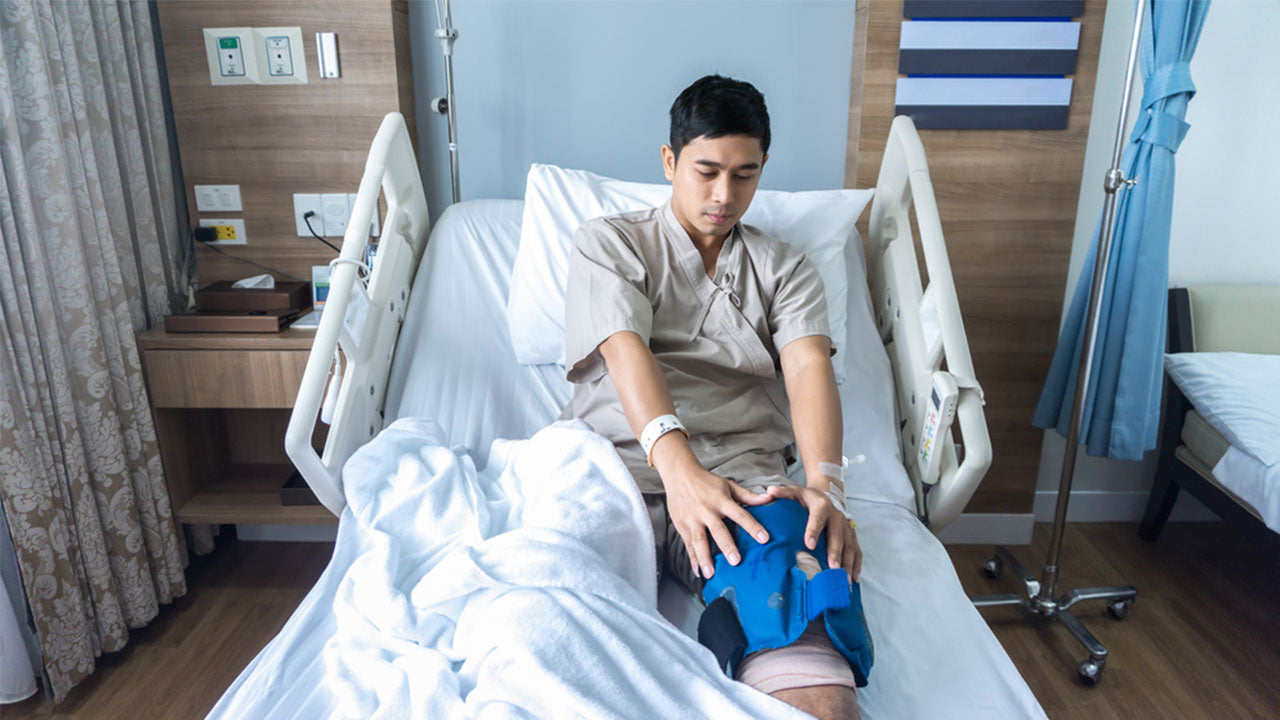Can You Walk with a Torn ACL? When to See a Doctor and How Long Recovery Takes
 By: by Amino Science
By: by Amino Science

An ACL tear is one of the most common injuries seen in sports medicine, and for that reason, many people wonder: can you walk with a torn ACL? Can a torn ACL heal on its own, or does it require reconstructive surgery? We have a few quick details you can review about ACL injuries, including whether it's safe to walk around if you suspect you have an ACL tear.
The ACL Explained
The anterior cruciate ligament (ACL) is one of four ligaments that provide support for the knee along with the PCL (the posterior cruciate ligament, located at the back of the knee), the LCL, and the MCL (the lateral collateral ligament and medial collateral ligament on the outside and inside of the knee joint). The ACL is unique because it runs diagonally through your knee joint and is the major structure stopping your tibia (shinbone) from slipping up behind your knee and in front of your femur (thighbone).
Orthopedic surgeons are very familiar with ACL reconstruction surgeries, and those who work in sports medicine and rehab recognize it quickly. Athletes and weekend warriors who play jumping, twisting sports like soccer and basketball have a high risk of sustaining an ACL injury, and female athletes in particular are at an even higher risk thanks to their unique anatomy and the way their wider hips determine the positioning of their legs.
When your mind is in the game and your body comes to a sudden stop, you may feel and/or hear a pop followed by intense pain: this is likely an ACL injury, and you need to see a doctor right away to begin ACL repair.

Can You Walk with a Torn ACL?
Short answer: you can walk with a torn ACL, sometimes, but you absolutely should not.
Some people, especially sports players and professional athletes, have an impressively high pain tolerance, so high that they may try to "walk off" an injury as serious as a ligament tear. This is ill-advised, as the more you move about on an ACL tear, the further damage you do to the ligament. What may have started as a minor, partial ACL tear can develop into a complete ACL tear that requires a total replacement, often made by harvesting connective tissue from other areas of your body like your hamstrings (at the back of your thighs).
If you suspect you have an ACL injury, seek the advice of a health care provider immediately to avoid doing irreparable harm.
ACL Tear Symptoms and Diagnosis
Women are at higher risk of suffering more ACL tears than men due to genetic differences in female muscle elasticity and skeletal anatomy, specifically a narrower intercondylar notch (at the end of the femur) and a wider pelvis that causes them to have a greater Q angle (the angle at which the femur meets the tibia within the knee). That being said, both women and men are susceptible to ACL tears, which means it's important to recognize the symptoms as quickly as possible so you don't walk around on a torn ligament. Those symptoms include:
- A popping sound/sensation at the time of injury
- Persistent knee pain and an inability to perform normal tasks
- Rapid swelling and accompanying inflammation
- A loss of range of motion
- A feeling of "giving way" or instability under weight bearing
If you have these symptoms, seek medical advice right away. Here is what you may expect from a diagnosis.
- Physical exam: Your doctor will examine any visible bruising, manipulate the knee to identify where your pain is coming from, most likely while asking questions related to when this pain started and how severe it is.
- Imaging scans: X-rays and MRIs (magnetic resonance imaging) may be ordered to get a clear picture of your bones and soft tissues. These images help your doctor determine the extent of your injury and advise a course of action.
- Expert referral: A general practitioner, on diagnosing an issue with your knee ligaments, may refer you to an orthopedic surgeon and/or physical therapist for further targeted care.

ACL Repair and ACL Recovery Timeline
A damaged ACL can severely limit your range of motion and keep you from participating in sports and other activities you love. A knee injury involving the ligaments requires some form of medical intervention, but not always surgery.
Whether your doctor recommends surgery depends on the severity of your injury and the quality of your health at the time of diagnosis.
- Nonsurgical solutions: An ACL sprain or partial tear may not need surgery at all, merely sufficient rest and consultation with a physical therapist to avoid further damage and retrain the body to avoid pivoting movements.
- Surgical solutions: Surgery may be required in cases of a complete ACL tear, but not everyone is a healthy enough candidate for surgery. Young patients and athletes are usually encouraged to accept surgical repair to return to their former activity level, but the physical and financial cost of the procedure may not be warranted for those who cannot afford it, those who lead a sedentary lifestyle, or older adults who are at a high risk of surgical complications.
If surgery is selected, it will be a long process, but maybe not as long as you fear. An arthroscopic knee surgery recovery timeline is measured in weeks rather than months, so if you have an injured knee in January, you may be back to your normal activities by summer.
A partial tear can be simply stitched together to promote healing, and while a complete tear may require a tissue graft from another part of the body (like the patellar tendon of the kneecap) and a longer recovery time, if you're healthy enough for the surgery, you likely have the resources to recover completely.
Ultimately, the average recovery time after ACL surgery takes between 6 and 9 months, with the majority of that time spent improving day by day with physical therapy. You may be prescribed pain medication to help this process along, or utilize over-the-counter NSAIDs like ibuprofen (Advil), but don't forget about natural anti-inflammatory and essential amino acid supplements that can help you reduce pain and rebuild tissue without synthetic pharmaceuticals.
Heal, The Amino Company's Surgical Recovery blend, is clinically proven to help you recover stronger and faster from surgery and injuries.
The long-term success rates of ACL surgery repairs are between 82% and 95%, which means there's an excellent chance that your tissue graft will be successful and your knee will be functional again, especially when helped along by Heal.

Avoiding ACL Injuries
It's difficult to fully prevent an ACL injury because accidents can never be fully eliminated. However, if you make sure to stretch and warm up before sporting, if you prioritize a strength-training regimen to make sure your nearby muscles like the quadriceps (the front of the thigh) can help support your knee, and if you embrace equipment such as knee braces to help keep your knee from moving unnaturally, you can minimize your risk of anterior cruciate ligament injuries.

Up to 25% off Amino
Shop NowComments (0)
Most Craveable Recipes




 833-264-6620
833-264-6620



















